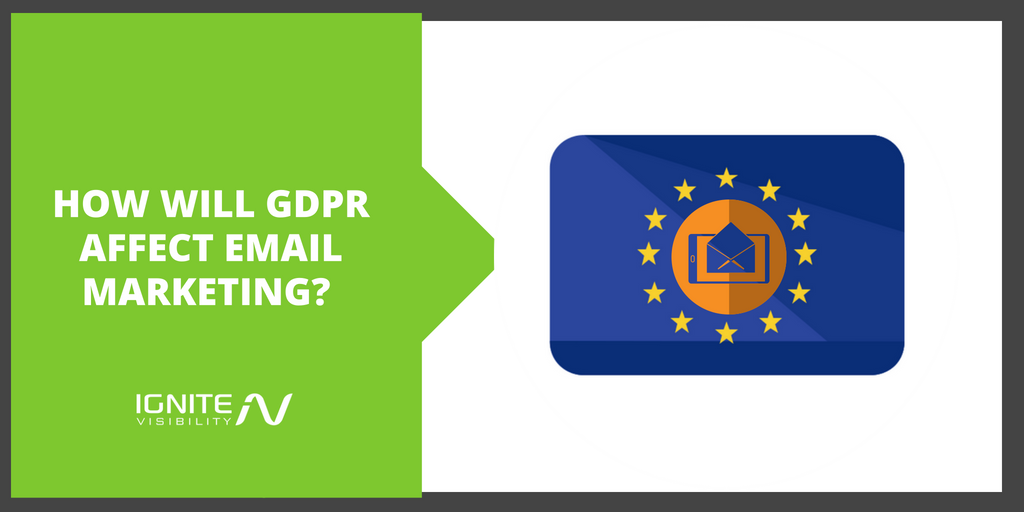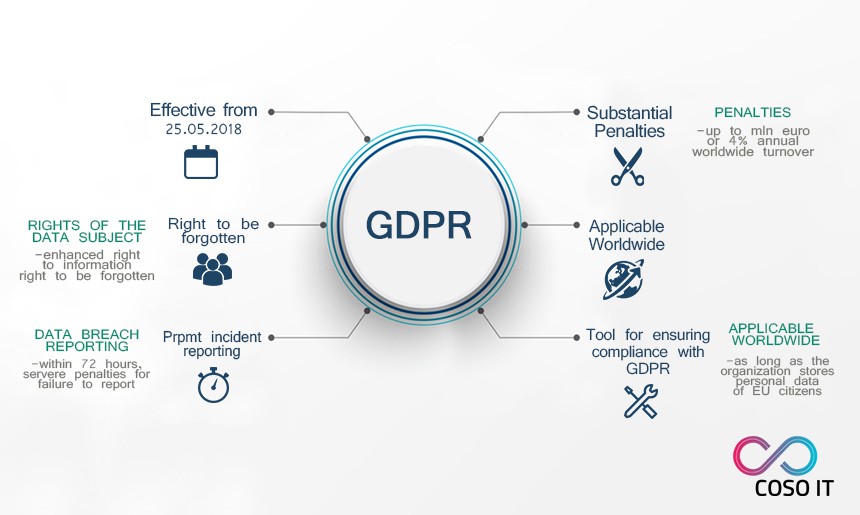The GDPR has changed how companies handle personal data. Email marketing is no exception.
Introduced in 2018, the General Data Protection Regulation (GDPR) has significantly impacted data privacy laws across Europe. This regulation mandates strict guidelines for collecting, storing, and using personal data. Businesses must now ensure they have clear consent before sending marketing emails.
The GDPR also requires that companies provide easy ways for users to opt-out. These rules mean email marketers need to be more careful and transparent. In this blog, we will explore how these regulations affect email marketing and what steps businesses can take to stay compliant. Understanding these changes is crucial for maintaining trust and avoiding penalties.
Introduction To Gdpr
Email marketing is a crucial part of many businesses. But new regulations can change how it works. The European Union’s General Data Protection Regulation (GDPR) is one such regulation. It impacts how companies collect and use personal data. Understanding GDPR is important for anyone using email marketing.
What Is Gdpr?
GDPR stands for General Data Protection Regulation. It is a law in the European Union. It sets rules for data protection and privacy. The law applies to all companies processing personal data of EU citizens. This means even non-EU companies must comply if they handle EU data.
Purpose Of Gdpr
The main goal of GDPR is to protect personal data. It gives individuals more control over their data. It also ensures businesses handle data responsibly. Companies must be clear about how they use data. They need to get explicit consent from people before collecting their data. This helps build trust between businesses and customers.

Credit: ignitevisibility.com
Gdpr’s Impact On Email Marketing
The General Data Protection Regulation (GDPR) has changed email marketing. Companies now need to follow strict rules to protect user data. This law affects how businesses collect, store, and use email addresses. Understanding these changes is vital for email marketers.
Changes In Consent Requirements
GDPR requires clear consent from users before adding them to email lists. Users must opt-in knowingly and willingly. Pre-checked boxes are not allowed. Marketers need to provide specific information about how the data will be used. This means more transparency.
Subscribers should know what to expect. They need to understand the type of content they will receive. This helps build trust and ensures compliance with GDPR. Marketers must keep records of consent. This is crucial for proving compliance.
Impact On Mailing Lists
Mailing lists must be cleaned up. Only those who have given explicit consent can stay. This might reduce the size of mailing lists. However, it improves the quality of the audience. Engaged subscribers are more valuable.
Marketers need to verify existing contacts. They must ensure that everyone on their list has opted in. This process might take time. But it helps in the long run. It ensures that all email communications are compliant with GDPR.
Re-permission campaigns might be necessary. These campaigns ask existing subscribers to confirm their consent. This ensures lists are clean and compliant. It is an important step for GDPR compliance.
Data Collection Under Gdpr
Email marketing must adapt to GDPR by obtaining explicit consent from users. Marketers need to ensure clear opt-in processes. Personal data must be handled with care.
The General Data Protection Regulation (GDPR) changes email marketing. Businesses must now follow strict rules for collecting and using data. These rules aim to protect consumer privacy and ensure data transparency.New Data Collection Practices
Under GDPR, businesses need explicit consent to collect data. This means users must actively agree to share their information. Pre-checked boxes are not allowed anymore. Companies must explain why they need the data. They must also tell users how they will use it. This transparency builds trust with customers.Limitations On Data Usage
GDPR limits how businesses can use collected data. Companies can only use data for the purpose it was collected. Using data for other reasons requires fresh consent. Businesses must also provide easy ways for users to withdraw consent. This makes sure that users have control over their personal information. By following these rules, businesses can avoid hefty fines. They can also maintain a good reputation by respecting user privacy. “`
Credit: www.cleverreach.com
Rights Of Email Recipients
The EU GDPR has brought several important rights for email recipients. These rights ensure that individuals have control over their personal data. Understanding these rights is crucial for businesses engaged in email marketing.
Right To Access
Email recipients have the right to access their personal data. They can request information about how their data is being used. Businesses must provide this information upon request. This includes details on data storage and processing.
Providing easy access to personal data builds trust. It also ensures compliance with GDPR regulations. Ignoring access requests can lead to penalties.
Right To Be Forgotten
Email recipients can request the deletion of their personal data. This is known as the “right to be forgotten.” Businesses must comply with these requests promptly. Failure to do so can result in fines.
Deleting personal data means removing it from all databases. It also means stopping all further processing of the data. Respecting this right is essential for maintaining customer trust.
By understanding and respecting these rights, businesses can improve their email marketing strategies. They can also ensure compliance with GDPR regulations.
Compliance Strategies For Businesses
The EU GDPR has transformed the way businesses handle email marketing. Ensuring compliance is now more crucial than ever. Companies need to adopt effective strategies to align with GDPR requirements. This section explores two pivotal compliance strategies: updating privacy policies and implementing double opt-in.
Updating Privacy Policies
Businesses must update their privacy policies to align with GDPR standards. These policies should clearly state how user data is collected, used, and stored. Transparency is key.
Ensure your privacy policy includes:
- Purpose of data collection
- Types of data collected
- Data storage duration
- User rights regarding their data
- Contact information for data concerns
Regularly review and update your privacy policy. This will ensure it remains compliant with any changes in regulations.
Implementing Double Opt-in
Double opt-in enhances email marketing compliance. It ensures users confirm their subscription twice. This reduces the risk of accidental or fraudulent sign-ups.
The double opt-in process involves:
- User enters their email on your sign-up form.
- User receives a confirmation email.
- User clicks a link to confirm their subscription.
Implementing double opt-in has several benefits:
- Increased email list quality
- Reduced spam complaints
- Enhanced user trust
Ensure your email marketing platform supports double opt-in. This is crucial for GDPR compliance.

Credit: www.directiq.com
Tools For Gdpr Compliance
With the enforcement of the EU GDPR, businesses must ensure their email marketing practices are compliant. Using the right tools can simplify this process. Below, we explore some essential tools to help you stay GDPR compliant.
Email Marketing Platforms
Choosing an email marketing platform that supports GDPR compliance is crucial. Here are some features to look for:
- Consent Management: Ensure the platform allows you to obtain and store explicit consent from subscribers.
- Data Encryption: Look for platforms that encrypt data both in transit and at rest.
- Access Controls: The platform should provide role-based access controls to protect personal data.
- Data Portability: It should offer easy ways to export subscriber data in a machine-readable format.
- Privacy Policy: Make sure the platform has a clear privacy policy that aligns with GDPR requirements.
Data Management Solutions
Effective data management is key to GDPR compliance. Here are some solutions to consider:
| Solution | Benefits |
|---|---|
| CRM Systems | Helps in organizing and managing customer data securely. |
| Data Mapping Tools | Identify where personal data is stored and processed. |
| Data Auditing Software | Tracks data access and modifications to ensure compliance. |
Using these tools will help you manage subscriber data effectively, ensuring compliance with GDPR regulations.
Penalties For Non-compliance
Businesses face hefty fines for not complying with GDPR in email marketing. Violations can lead to penalties up to 20 million euros or 4% of global turnover.
The EU GDPR has strict rules for email marketing. Non-compliance leads to severe penalties. Businesses must be aware of these consequences. Understanding the penalties can help avoid costly mistakes.Fines And Sanctions
The GDPR imposes heavy fines for violations. The fines depend on the severity of the breach. Minor breaches can result in fines up to €10 million. For more serious breaches, fines can reach €20 million or 4% of annual global turnover. These penalties can cripple small and large businesses alike. To avoid these fines, companies must ensure compliance with GDPR rules.Case Studies Of Violations
Several companies have faced penalties under the GDPR. For example, British Airways was fined €22 million. Their data breach affected over 400,000 customers. Another case involves Marriott International. They faced a fine of €20 million for a data breach. These examples show the importance of GDPR compliance. Businesses must take data protection seriously. Non-compliance can lead to hefty fines and damaged reputations. “`Future Of Email Marketing
The future of email marketing is evolving rapidly. With the introduction of the EU GDPR, businesses must rethink their strategies. Compliance is no longer optional. It is a necessity. How will this affect email marketing?
Predicted Trends
Email marketing will become more personalized. Businesses will focus on quality over quantity. They will target specific audiences. This approach ensures better engagement. Users will expect transparency about data use. Trust will be crucial. Companies will invest in data protection technologies. Automation will play a key role. It will help manage consent and preferences. This will streamline marketing efforts.
Best Practices Moving Forward
Obtaining clear consent is vital. Always ask for permission before sending emails. Use simple language in consent forms. Make sure it is easy to understand. Provide an easy opt-out option. Respect user preferences. Keep data secure. Use encryption and other security measures. Regularly update your privacy policy. Inform users about any changes. Segment your email lists. Send relevant content to specific groups. This increases engagement and reduces unsubscribes.
Frequently Asked Questions
What Is Gdpr In Email Marketing?
The GDPR is the General Data Protection Regulation. It is a law that protects EU citizens’ personal data. Email marketers must get explicit consent before sending promotional emails.
How Does Gdpr Affect Email Consent?
Under GDPR, consent must be clear and specific. Users must actively opt-in to receive emails. Pre-ticked boxes and passive consent are not allowed.
Can I Email Eu Customers Without Consent?
No, you cannot email EU customers without their explicit consent. GDPR requires clear consent for all marketing emails. Violating this can result in hefty fines.
What Happens If I Violate Gdpr?
Violating GDPR can result in severe penalties. Fines can be up to 20 million euros or 4% of your global turnover. It’s crucial to comply.
Conclusion
Email marketing will change with GDPR. Businesses must respect user privacy. Clear consent is now essential. Transparency builds trust with customers. Better data handling improves email campaigns. Compliance protects from hefty fines. Adapt and stay informed. Email marketing can still be effective.
Focus on user rights. Embrace GDPR for long-term success.



Leave a Reply